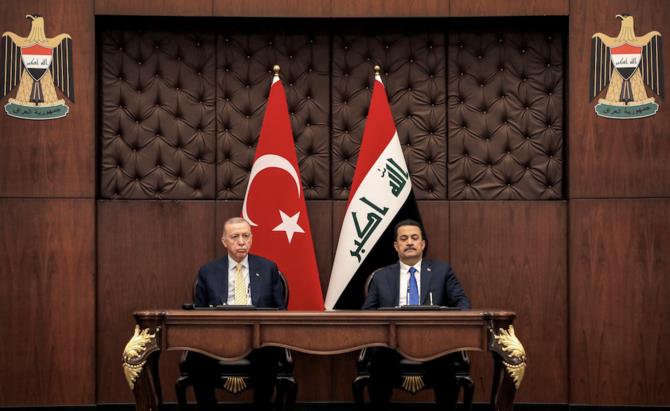
Arab interests in key parts of Africa are growing as part of a geopolitical struggle over the future of strategic minerals and natural gas. This race for resources impacts future extraction and supply chains.
Arab states appear to be using a nodal approach to Central Africa. They are using this “binding” approach for political, economic and security purposes. They see not only Kenya, Tanzania and Uganda as playing critical roles, but they are also looking at how countries such as the Democratic Republic of Congo, Zimbabwe and Mozambique fit into Central Africa’s potential for bringing strategic minerals to market. Angola fits into the emerging picture too because of its critical security role across the continent’s middle and south.
Arab states are seeking to bring a sense of stability to some of these countries through investment initiatives in strategic minerals and energy futures.
The Gulf states sees their proximity to Africa as an opportunity to benefit from its growth by investing in the extraction and export of strategic minerals and natural gas, while promoting security in areas where they see the potential for extremism to rise and such a strategy prevents this organic occurrence.
For the Gulf states, Africa represents several cross-cutting arcs of crisis that complicate the regional security and financial picture. They see that the security of West Africa is critical too, especially in supporting the Sahel joint military force. The force falls under the rubric of G5 Sahel, which brings together Mauritania, Mali, Niger, Burkina Faso and Chad for regional cooperation on political and security issues. France invited the UAE, Saudi Arabia, Germany and Italy to coordinate with this organization. Saudi Arabia subsequently committed $118 million and the UAE offered $35 million to fund the joint military force. In addition, the UAE has promised to establish a military school in Mauritania.
Support for this joint force allows Gulf states to claim that they are leading the fight against global terrorism, but it also prepares a possible force for use in Central Africa besides the current plan for Sahel security and counter-terrorism operations. Gulf states want to extend their influence into Africa to not only push Iran out of some of these countries, but also to guarantee that the strategic mineral market does not fall into the wrong hands.
Arab states are seeking to bring a sense of stability to some of these countries through investment initiatives in strategic minerals and energy futures.
Dr. Theodore Karasik
Most African countries are rich in natural resources such as gas, oil, gold, iron, copper, diamonds, platinum, and phosphate. Trade delegations from the Gulf regularly visit key regions of Africa and the leaders of those countries’ biggest firms to strengthen ties with African governments, as well as develop lasting meaningful business relationships. DP World has already expanded into West Africa, where the company operates the Dakar container terminal. The shape of the exploration and extraction model is taking shape.
Russia too is lurking behind the Gulf push into the Sahel and Central Africa. Foreign Minister Sergey Lavrov’s trip to Zimbabwe last month was significant for Moscow’s plans to dominate the diamond market in that country. Moscow is also investing heavily in Mozambique’s natural gas future, as well as sizeable investments in the DRC and other key African states.
Russia sees Africa as a security requirement regarding strategic minerals, and capturing that market allows Moscow the ability to stress other country’s strategic mineral requirements. Even though Russia is home to vast reserves of strategic minerals, Moscow’s strategy is to control the entire market for such precious gems and materials critical to today’s economy and technology drivers. China and India are peer competitors in this ongoing race.
Strategic minerals are a major part of resource geopolitics. Gulf states are increasingly part of the strategic minerals supply chain given their own transformation requirements, but also see themselves as a hub for the distribution of these elements coming from Central Africa. As the global economic system has developed based on strategic minerals, the demand for such ores will only grow as requirements rise. The Gulf states recognize the importance of strategic minerals and seek to be a major actor in their extraction and distribution. Whether politics gets in the way is another question.
• Dr. Theodore Karasik is a senior adviser to Gulf State Analytics in Washington, DC. Twitter: @tkarasik.












